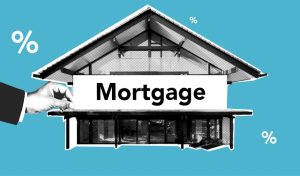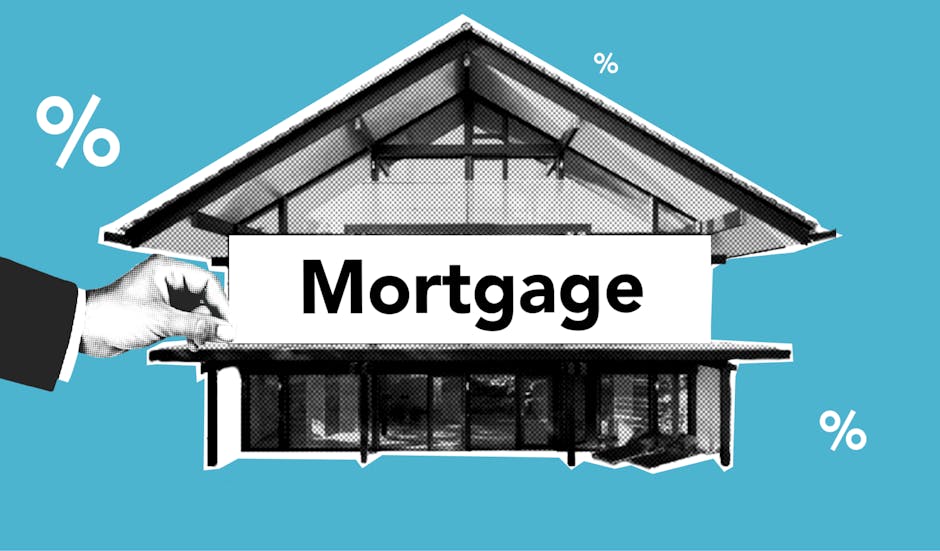
The Pros and Cons of Home Rentals vs. Home Ownership: Which is Right for You?
Discover the pros and cons of home rentals to make an informed decision – read now!

Understanding Your Rights and Responsibilities as a Home Renter in Melbourne
Discover your rights and responsibilities as a home renter in Melbourne in our insightful blog on home rentals.

Key Steps a Melbourne Buyers Agent Takes to Secure Your Dream Home
Discover how a Melbourne buyers agent secures your dream home in our blog ‘Key Steps a Melbourne Buyers Agent Takes to Secure Your Dream Home’.

The Role of Real Estate Appraisals in Determining Property Values.
Discover how real estate appraisals impact property values in our blog ‘The Role of Real Estate Appraisals in Determining Property Values’!

The Importance of Home Valuations in Today’s Real Estate Market
Discover the significance of home valuations in today’s real estate market.

A Comprehensive Guide: Understand Property Prices in Richmond
Discover insights into Richmond homes pricing in our comprehensive guide ‘Understand Property Prices in Richmond’.

Top Things to Consider when Choosing Property Managers
Discover the essential factors for selecting property managers in our blog ‘Top Things to Consider when Choosing Property Managers’. Make confident decisions for your properties!

A Comprehensive Guide to Navigate the Melbourne Rental Market
Discover expert insights on the Melbourne rental market in our comprehensive guide ‘A Comprehensive Guide to Navigate the Melbourne Rental Market’. Dominate the property game with our tips and strategies!
- Uncategorized
Introduction to Home Rentals and Home Ownership
Renting a home provides flexibility, allowing you to easily move if needed without the responsibility of property maintenance. On the other hand, owning a home gives you the freedom to personalize and invest in your property. Consider your lifestyle and financial goals when deciding between renting and owning.
Advantages of Home Rentals
Renting a house gives you the flexibility to move whenever you want without the responsibility of selling a property. Maintenance costs are usually the landlord’s responsibility, saving you money and hassle. If your needs change, it’s easier to move to a new rental than to sell a house.
Disadvantages of Home Rentals
One major disadvantage of home rentals is the lack of long-term equity. When you rent a home, you’re not building ownership in the property like you would with a mortgage. This means that your monthly payments are not investments in an asset that you will eventually own. Additionally, renting doesn’t offer the same stability as homeownership since landlords can decide to sell the property or raise the rent, potentially forcing you to move.
Benefits of Home Ownership
Homeownership offers stability and a sense of permanence. When you own a home, you have control over how you want to customize and decorate it. Additionally, owning a home can build equity over time, potentially increasing your wealth. Homeownership may also provide tax benefits, such as deductions for mortgage interest and property taxes.
Drawbacks of Home Ownership
Owning a home means you are responsible for all maintenance and repairs, which can be costly. Property taxes and homeowner’s insurance are expenses that come with owning a home. In case of an economic downturn, the value of your property might decrease, affecting your investment.
Financial Considerations: Cost of Home Rentals
Renting a home can provide flexibility, with less commitment than owning a home. In general, renting a home means you have lower upfront costs, including no need for a down payment. However, rents can fluctuate based on market conditions, and you may not have control over increases. While not building equity like in homeownership, renting can offer predictability in monthly expenses and the opportunity to save for other financial goals.
Financial Considerations: Cost of Home Ownership
When considering the cost of owning a home, it’s essential to factor in various expenses beyond the mortgage payment. These expenses include property taxes, homeowner’s insurance, maintenance and repairs, utilities, and homeowner association fees if applicable. Additionally, you may incur costs for initial home inspections and appraisals, as well as closing costs when purchasing the home. Owning a home also requires budgeting for unexpected expenses like emergency repairs or replacements for appliances.
Maintenance Responsibilities for Rentals
When you rent a home, the landlord is usually responsible for maintaining the property. This includes fixing any broken appliances, handling repairs, and taking care of the overall upkeep of the rental. However, as a tenant, you may have some responsibilities when it comes to maintenance, such as keeping the property clean and reporting any issues promptly to the landlord for them to address. It’s essential to be aware of your specific maintenance obligations outlined in your lease agreement.
Maintenance Responsibilities for Home Ownership
Owning a home means you’re responsible for maintenance tasks. These can include repairs, landscaping, plumbing, and more. It’s up to you to keep your home in good shape – there’s no landlord to call for help!
Conclusion: Choosing between Home Rentals and Home Ownership
When deciding between renting a home and owning one, weigh the pros and cons carefully to make the right choice for your situation. Renting offers flexibility with less financial commitment, while owning provides stability and potential investment value. Consider factors like your long-term goals, financial situation, and lifestyle preferences. Ultimately, the decision between home rentals and homeownership is a personal one that depends on what fits your current needs and future plans best.
- Uncategorized
Introduction to Home Renting in Melbourne
Renting a home in Melbourne comes with rights and responsibilities that you need to be aware of. Here are some key points to help you understand home renting in Melbourne:
- As a renter in Melbourne, you have the right to a safe and habitable living space.
- It is your responsibility to pay rent on time and maintain the property in good condition.
- Landlords are required to provide you with a written agreement outlining the terms of the tenancy.
- You have the right to privacy, and landlords must give you proper notice before entering the property.
- If there are any disputes or issues, you can seek help from the Tenants Union of Victoria or the Victorian Civil and Administrative Tribunal (VCAT).
Understanding these rights and responsibilities will help ensure a smooth renting experience in Melbourne.
Rights of Home Renters
In Melbourne, renters have specific rights to ensure they are treated fairly. Some of these rights include the right to a safe and habitable living space, the right to privacy, and the right to have repairs done in a timely manner. Security of tenure is another crucial right, meaning you have the right to stay in the property for the agreed lease period as long as you follow the terms of the lease agreement. Additionally, renters have the right to have their bond money returned promptly at the end of the tenancy, provided the property is left in good condition.
Responsibilities of Home Renters
When you rent a home in Melbourne, you are responsible for keeping it clean and well-maintained. Make sure to pay your rent on time each month to maintain a good relationship with your landlord. Follow any rules outlined in your lease agreement, such as restrictions on pets or smoking. Notify your landlord promptly if any repairs are needed in the property. Remember, taking care of the rented home as if it were your own is essential to being a responsible home renter.
Rent Payment and Deposits
When renting a home in Melbourne, it’s essential to understand your rights and responsibilities when it comes to rent payments and deposits. Here’s what you need to know:
- Rent payment is typically due on a specified date each month, as outlined in your rental agreement.
- Security deposits are commonly required before moving in and are intended to cover any damages beyond normal wear and tear.
- According to Victorian law, your security deposit must be returned to you within 14 days of the end of your tenancy, provided there are no deductions for damages or outstanding rent.
Understanding these aspects will help you navigate the rental process smoothly and protect your rights as a tenant in Melbourne.
Lease Agreements Explained
As a renter in Melbourne, understanding your lease agreement is crucial. It outlines the terms and conditions of your rental arrangement, so be sure to review it carefully. Here are some key points to consider:
Your lease agreement is a legal contract between you and the landlord, so make sure you understand all the obligations and rights outlined in it.
It typically includes details such as the rent amount, lease term, security deposit, rules on pets, maintenance responsibilities, and notice requirements.
Before signing, clarify any questions you have with the landlord or property manager to avoid misunderstandings later on.
Maintenance and Repairs
When you rent a home in Melbourne, it’s important to understand who is responsible for maintenance and repairs. As a renter, you have the right to a safe and habitable living space. However, it is usually the landlord’s duty to maintain the property and make any necessary repairs. Here are a few points to keep in mind:
Landlords are generally responsible for ensuring that the property meets health and safety standards.
If repairs are needed due to normal wear and tear, it is typically the landlord’s responsibility to cover the costs.
In some cases, you may be required to carry out minor maintenance tasks, such as changing light bulbs or keeping the property clean.
If you notice any issues with the property, it is important to report them to your landlord or property manager promptly.
By understanding your rights and responsibilities regarding maintenance and repairs, you can ensure a smooth renting experience in Melbourne.
Privacy and Security
As a renter in Melbourne, it’s essential to understand your privacy and security rights. Here are some key points to keep in mind:
Your landlord must provide notice before entering your rental unit, except in emergencies.
You have the right to request necessary repairs for maintaining your privacy and security, such as fixing broken locks or installing security measures.
It’s important to report any security concerns or unauthorized individuals in your rental property to your landlord or the authorities promptly.
Safeguard your personal information and avoid sharing keys or access codes with unauthorized individuals to protect your privacy and security.
Moving Out Guidelines
In Melbourne, when you decide to move out of the rental property, there are some important guidelines to follow. Here are a few key points to consider:
Giving Notice: Inform your landlord or property manager before you move out. The notice period is usually 28 days in advance.
Cleaning: Leave the property in the same condition as when you moved in. It’s essential to clean thoroughly to receive your full bond refund.
Inspection: The landlord or agent will conduct a final inspection. Be present during this inspection to address any issues.
Returning Keys: Return all keys to the landlord or agent on or before the final day of your tenancy.
Following these guidelines ensures a smooth and hassle-free moving out process.
Dealing with Disputes
When renting a home in Melbourne, it’s essential to know how to handle disputes if they arise. Here are a few tips to help you address any disagreements that may come up:
- Try to resolve the issue directly with your landlord or property manager first.
- If direct communication doesn’t work, consider seeking help from a tenancy advocacy service or a mediator.
- Familiarize yourself with the tenancy laws in Melbourne to understand your rights and responsibilities in different situations.
By being informed and proactive, you can navigate disputes effectively and protect your rights as a home renter in Melbourne.
Conclusion: Ensuring a Positive Rental Experience
If you want to make sure you have a positive rental experience as a home renter in Melbourne, it’s essential to understand your rights and responsibilities. By knowing what you’re entitled to and what is expected of you, you can prevent misunderstandings and conflicts with your landlord. Remember, communication is key to maintaining a good landlord-tenant relationship.
- Uncategorized
Importance of a Melbourne Buyers Agent
A Melbourne buyers agent can make your home buying experience easier by helping you navigate the tricky real estate market. They have access to properties that may not be publicly listed, giving you an edge in finding your dream home. Additionally, they handle negotiations, contracts, and other complexities, saving you time and stress. By understanding your needs and preferences, a buyers agent can streamline the process and ensure you find a home that meets your criteria.
Initial Consultation and Property Preferences
During the initial consultation with a Melbourne Buyers Agent, you will discuss your property preferences and what you are looking for in your dream home. This is a crucial step where you can share your must-haves and deal-breakers to help the agent understand your needs better. The agent will ask questions to clarify your preferences and expectations, enabling them to tailor their search to find the ideal property for you.
Property Search and Evaluation
To find your dream home, a Melbourne Buyers Agent starts by searching for properties that align with your requirements. They conduct thorough evaluations of each property, considering factors like location, size, condition, and market value. By meticulously assessing each option, they ensure that the properties they present to you meet your criteria and expectations. This process helps to streamline your property search and increases the chances of securing a home that fits your needs perfectly.
Property Inspections and Comparisons
Property inspections are a crucial part of the process when a Melbourne Buyers Agent is securing your dream home. They carefully evaluate each property you’re interested in to ensure they meet your requirements. Through thorough comparisons, they help you assess the pros and cons of each property, guiding you towards making an informed decision on the best choice for your future home.
Negotiation Strategies and Offers
When it comes to negotiation strategies and offers in real estate, a Melbourne buyer’s agent plays a crucial role in securing your dream home. These professionals are skilled at navigating the complexities of property transactions to get you the best deal possible. Here are some key steps they take:
- They conduct thorough research on the property and market trends to determine the optimal negotiation strategy.
- Buyer’s agents use their expertise to craft compelling offers that stand out to sellers.
- Negotiation tactics such as leveraging market conditions, property flaws, and timing are employed to ensure the best outcome for buyers.
- They assist in structuring offers with terms and conditions that protect your interests while being attractive to sellers.
- Buyer’s agents work to strike a balance between your budget and the property’s value, advocating for you throughout the negotiation process.
Partnering with a Melbourne buyer’s agent can enhance your chances of successfully securing your dream home through effective negotiation strategies and offers.
Legal and Contract Assistance
These are the experts who handle legal paperwork, contracts, and negotiations for you. They ensure that all the terms and conditions are in your best interest when you buy a property. Buyers agents review contracts, explain legal jargon, and help you understand your rights and obligations. They also assist in negotiating terms like the price, settlement date, and other crucial details to protect your interests in the property purchase.
Settlement Process and Paperwork
During the settlement process, your Melbourne buyers agent will handle all the necessary paperwork to ensure a smooth transition of ownership. This includes preparing the sales contract, coordinating with solicitors, arranging settlement dates, and organizing property inspections. Clear communication and attention to detail are crucial during this stage to avoid any last-minute issues. Trust in your agent’s expertise to guide you through the paperwork and settlement process efficiently and effectively.
Property Handover and Inspections
When you reach the property handover stage, your Melbourne buyers agent will arrange for thorough inspections to ensure everything is in order before you officially take possession of your dream home. During this crucial step, your agent will check for any potential issues or discrepancies and make sure that all necessary documents and keys are handed over to you seamlessly. Inspections are vital to guarantee a smooth transition into your new property and to address any concerns promptly.
Post-Purchase Support and Guidance
After purchasing your dream home, your Melbourne Buyer’s Agent will provide you with post-purchase support and guidance. They will assist you in understanding any post-settlement processes, such as transferring utilities, updating your address, and connecting with service providers. Your agent will also offer guidance on any potential maintenance or improvements needed for your new home. Their goal is to ensure a smooth transition into your new property and provide ongoing support as you settle into your dream home.
Achieving Your Dream Home with a Melbourne Buyers Agent
A Melbourne Buyers Agent can help you secure your dream home by identifying your needs, preferences, and budget. They will search for properties that meet your criteria, arrange viewings, and negotiate the purchase price on your behalf. Here are the key steps they take to ensure you find your ideal home:
- Initial Consultation: The agent will meet with you to discuss your requirements, budget, and timeline.
- Property Search: They will conduct thorough research and present you with a selection of properties that match your criteria.
- Viewings: The agent will schedule property viewings and accompany you to assess each property.
- Negotiation: Once you find a property you like, the agent will negotiate with the seller to secure the best possible price.
- Contract and Settlement: They will assist you with the contract process and ensure a smooth settlement.
With the help of a Melbourne Buyers Agent, you can navigate the property market with ease and confidence to achieve your dream home.
- Uncategorized
Understanding real estate appraisals
Real estate appraisals are crucial in determining the value of a property. Appraisers evaluate various factors like the property’s location, size, condition, and recent sale prices of comparable properties in the area. Their assessment helps sellers set a fair price and buyers make informed decisions. Appraisals are important for securing mortgages, as lenders use the appraisal value to determine how much they will loan.
Factors influencing property values
Knowing factors that influence property values can help you understand why one property might be valued differently from another. Some of these factors include the property’s location, size, condition, age, amenities, and recent sales prices of similar properties in the area. Additionally, economic trends, such as interest rates and job growth in the area, can also impact property values. Understanding these factors can give you insight into how real estate appraisers determine the value of a property.
Importance of accurate property valuations
Accurate property valuations are crucial in the real estate industry. They provide an unbiased estimate of a property’s worth, helping buyers, sellers, and lenders make informed decisions. Property valuations help determine the fair market value of a property by considering various factors such as location, size, condition, and recent comparable sales. Having an accurate property valuation ensures that the buyer is not overpaying and the seller is not underselling. Lenders also rely on accurate valuations to assess the property’s worth before approving a loan.
Role of appraisers in real estate transactions
Appraisers play a crucial role in real estate transactions. They assess the value of a property based on various factors like its location, size, condition, and recent sales of similar properties in the area. Their evaluation is important as it helps determine the fair market value of a property, which is essential for both buyers and sellers. Appraisers provide an unbiased opinion on the property’s worth, ensuring transparency and fairness in real estate deals. Their expertise helps in establishing a reliable and accurate value that influences the final price negotiation between the parties involved.
Methods used in property appraisal
Property appraisers use a variety of methods to determine the value of a property. These methods include:
Sales Comparison Approach: This method involves comparing the property in question to similar properties that have recently been sold in the area. By analyzing these comparable sales, appraisers can gauge the value of the property.
Cost Approach: In this method, the appraiser calculates the cost of replacing the property with a similar one. This includes considering the cost of the land and the cost of construction.
Income Approach: For properties that generate income, like rental properties or commercial buildings, the income approach is used. This method evaluates the property’s value based on its potential income generation.
By combining these different approaches, appraisers can arrive at a comprehensive valuation of a property.
Key components of a property appraisal report
In a property appraisal report, you can expect to find key components that play a crucial role in determining the value of a property. These components include:
Property Details: The report will outline specifics about the property, such as its location, size, age, and condition.
Comparable Properties: Appraisers will include information about similar properties in the area that have recently sold to help determine a fair market value.
Assessment Methods: Appraisers use various methods to assess the property value, such as the sales comparison approach, income approach, and cost approach.
Appraiser’s Evaluation: The report will conclude with the appraiser’s professional evaluation of the property’s value based on their research and analysis.
Significance of appraisal in determining property values
Appraisals play a crucial role in estimating property values accurately. Real estate appraisers evaluate various factors like the property’s condition, location, and comparable sales in the area to determine its worth. The appraisal value helps both buyers and sellers understand the fair market value of a property, ensuring a smooth and informed real estate transaction.
Appraisal process from start to finish
The appraisal process begins with the appraiser inspecting the property. They assess its condition, size, and features to determine its value. Next, the appraiser researches similar properties in the area to compare. Using this information, they then create a detailed report that includes their valuation of the property. Finally, the report is shared with the client, providing them with a clear understanding of their property’s estimated value.
Challenges in property valuation
Property valuation faces challenges like determining the accurate condition of a property, assessing its value in a fluctuating market, and dealing with subjective opinions on the property’s worth. Additionally, external factors like economic conditions and location can influence the valuation process. These challenges require appraisers to rely on their expertise and knowledge to provide unbiased and accurate property valuations.
Conclusion: Impact of appraisals on the real estate market
Real estate appraisals play a crucial role in shaping the real estate market. Appraisals help determine the true value of properties, influencing decisions on buying, selling, and lending. A precise appraisal ensures fair transactions, prevents overpricing or underpricing, and maintains market stability. Accurate appraisals instill confidence in buyers and sellers, guiding them in making informed choices. Moreover, they provide a realistic snapshot of a property’s worth, making them vital in the dynamic real estate landscape.
- Uncategorized
Understanding home valuations in the real estate market
Knowing the value of your home is crucial when it comes to buying or selling. In the real estate market, home valuations help determine a property’s worth based on factors like location, size, condition, and recent sales in the area. Here are key points to understand:
- Accurate valuations ensure you don’t underprice or overprice your property.
- Professional appraisals by trained experts provide a detailed assessment of your home’s value.
- Online tools can offer estimates, but they may not always be precise.
With a solid grasp of home valuations, you can make informed decisions when navigating the dynamic real estate market.
Factors influencing property valuation
Property valuation is influenced by various factors, including the location of the property, its size and condition, recent sales of similar properties in the area, and any unique features it may have. Local market trends and the overall economic conditions also play a significant role in determining the value of a property. Additionally, improvements made to the property can increase its value, while any damage or needed repairs can decrease it. It is important to consider all these factors when determining the value of a property in today’s real estate market.
The role of appraisers and real estate agents
Appraisers and real estate agents play crucial roles in determining the value of your home in today’s real estate market. Here’s what they do:
Appraisers evaluate the property to provide an unbiased estimate of its worth based on factors like location, size, condition, and recent sales of similar properties.
Real estate agents use their market knowledge to assess the value of your home by analyzing current market trends, recent sales data, and the unique features of your property.
Working together, these professionals help you understand the market value of your home, which is essential for making informed decisions when buying or selling real estate.
How home valuations impact buying and selling decisions
Home valuations play a crucial role in the decisions made when buying or selling a home. Here are key points to consider:
Determining the accurate value of a property is essential for both buyers and sellers to make informed decisions.
For sellers, knowing the value of their home helps in setting a realistic price that attracts buyers without undervaluing the property.
For buyers, understanding the valuation helps in making fair offers and avoiding overpaying for a property.
Appraisals are often based on recent sales of similar properties in the area, as well as the current condition of the property.
Market trends and the overall condition of the real estate market also influence home valuations.
Seeking professional assistance from real estate agents or appraisers can provide valuable insights into the home valuation process.
Benefits of accurate home valuations
Accurate home valuations can help you understand the true value of your property in the current market. Here’s why they matter:
Help in setting the right price: Knowing the accurate value of your home enables you to set a competitive and attractive price when selling.
Assist in making informed decisions: With a precise valuation, you can make better decisions regarding refinancing, home improvements, or even purchasing a new property.
Avoid overpricing or underpricing: A correct valuation prevents you from overestimating or underestimating your property’s worth, which can affect its sale or purchase.
Negotiate confidently: When you know your home’s accurate value, you can negotiate confidently with potential buyers or sellers, ensuring you get the best deal possible.
Different methods used for property valuation
In property valuation, there are various methods used to determine a home’s worth. Some common methods include:
Comparative Market Analysis (CMA): This method involves evaluating similar properties in the area to estimate a home’s value.
Cost Approach: This method calculates the value of a property by considering the cost to replace it or the cost to build a similar property.
Income Approach: This method is often used for commercial properties and involves estimating the property’s value based on its income potential.
Each method has its strengths and weaknesses, and a combination of these approaches is often used to get a more accurate valuation. Understanding these methods can help you better assess the value of your property in today’s real estate market.
Importance of conducting regular home valuations
Regular home valuations can provide valuable insights into the current market value of your property. By staying informed about your home’s value, you can make informed decisions regarding selling, refinancing, or making improvements to your home. Conducting regular home valuations can help you understand the potential return on investment if you decide to sell your property. It also enables you to track the growth of your home’s value over time and identify any areas that may need attention to increase its market worth.
Technology’s role in modern property valuations
Modern technology has significantly influenced how property valuations are conducted today. With the advent of advanced tools and software, valuers can now leverage data analytics and artificial intelligence to assess property values more accurately and efficiently. By utilizing these technological innovations, valuers can streamline the valuation process, reduce human error, and provide more reliable and precise property assessments.
Common misconceptions about property valuations
Some people believe that property valuations are just the same as the market value of a home, but they are actually different. Property valuations are done by qualified professionals to determine the estimated worth of a property for various purposes, such as selling, refinancing, or insurance. Another misconception is that valuations only benefit sellers, while in reality, they are crucial for buyers, lenders, and even property tax assessors to ensure fair transactions. It’s important to understand that property valuations are not fixed and can fluctuate based on market conditions, property improvements, and other factors.
The future of home valuations in the real estate market
Home valuations in the real estate market are becoming increasingly vital for both buyers and sellers. They provide an estimate of a property’s worth based on various factors like location, size, and market trends. In the future, technology advancements are expected to play a key role in enhancing the accuracy and efficiency of home valuations. Automated valuation models are gaining popularity, offering quick and convenient assessments. However, it’s important to note that these models may not always capture the full picture, especially when it comes to unique or high-end properties. As the real estate market evolves, staying informed about the tools and methods used for home valuations will be crucial for making well-informed decisions.
- Uncategorized
Overview of Richmond’s Property Market
Richmond’s property market offers a diverse range of housing options, from apartments to detached houses. The average price for a property in Richmond is around (600,000 to )800,000. Factors such as location, size, condition, and amenities significantly impact property prices. Richmond’s property market is competitive, with properties often selling quickly, especially in desirable neighborhoods near schools, parks, and public transportation. It is essential to research the market thoroughly and consider working with a local real estate agent to navigate the buying or selling process successfully.

Factors Influencing Property Prices in Richmond
Property prices in Richmond are influenced by various factors. Here are some key aspects that can impact property prices in the area:
- Location: The neighborhood you choose in Richmond can significantly affect property prices. Areas with good schools, amenities, and low crime rates tend to have higher property values.
- Market Demand: The current demand for properties in Richmond plays a crucial role in determining prices. If there is high demand and low supply, property prices are likely to increase.
- Economic Conditions: Factors like the local economy, job opportunities, and income levels in Richmond can impact property prices. A strong economy often leads to higher property values.
- Property Age and Condition: The age and condition of a property can influence its price. Newer or well-maintained properties may command higher prices compared to older or poorly-maintained ones.
- Development Projects: Planned or ongoing development projects in the area can also impact property prices. Infrastructure improvements or new amenities can attract buyers and drive up prices.
Understanding these factors can help you make informed decisions when buying or selling property in Richmond.Types of Properties Available in Richmond
In Richmond, you can find various types of properties, including single-family homes, townhouses, condos, and apartments. Each type offers different living arrangements and amenities suited to different preferences and lifestyles. Single-family homes provide more space and privacy, while townhouses and condos often come with shared amenities and maintenance services. Apartments are usually more affordable and convenient for those seeking a rental living option. Consider your needs and budget when choosing the type of property that best fits your lifestyle in Richmond.
Buying vs. Renting in Richmond
If you are considering whether to buy or rent in Richmond, there are several factors you need to consider. Here are some key points to help you make an informed decision:
- Property prices in Richmond are influenced by factors such as location, property type, and market trends.
- Buying a property in Richmond gives you a sense of ownership and stability, but it also comes with responsibilities like maintenance and property taxes.
- Renting in Richmond offers flexibility and the ability to easily move when needed, but you may not build equity or customize the property to your liking.
- Currently, the average rent in Richmond is around $1,500 per month, but this can vary based on the neighborhood and property type.
- The median home value in Richmond is approximately $350,000, but prices can fluctuate based on the size, condition, and location of the property.
Consider your financial situation, long-term goals, and lifestyle preferences when deciding between buying or renting in Richmond.
Average Property Prices in Different Neighborhoods
In Richmond, property prices can vary significantly from one neighborhood to another. Here’s a breakdown of the average property prices in different neighborhoods:
- Downtown Richmond tends to have the highest property prices, with an average cost of around $500,000 for a single-family home.
- West End is another pricier area, where you can expect to pay around $400,000 on average for a home.
- East End offers more affordable options, with average property prices ranging from (200,000 to )300,000.
- Southside Richmond is known for its mix of affordable and upscale properties, with average prices falling between (250,000 and )350,000.
Keep in mind that these are rough estimates and actual prices can vary based on factors like property size, condition, and specific location within each neighborhood.
Understanding Property Trends in Richmond
Property trends in Richmond can give you insights into the real estate market. Prices fluctuate based on factors like location, demand, and economic conditions. Here are a few key points to help you comprehend property trends in Richmond:
- Property values in Richmond can vary greatly based on the neighborhood you are looking at.
- Keep an eye on the demand for properties in Richmond; higher demand often leads to higher prices.
- Economic factors such as job growth and development projects in the area can impact property trends.
- Consulting with local real estate experts can provide valuable information on current property trends in Richmond.
Understanding these trends can assist you in making informed decisions when it comes to property investments in Richmond.
Tips for Negotiating Property Prices
Property prices in Richmond can be negotiated, giving you the opportunity to potentially get a better deal on a property. Here are some tips to help you negotiate effectively:
- Do Your Research: Before negotiating, research the property market in Richmond to understand the average prices in the area.
- Establish Your Budget: Determine your budget and set a maximum limit for how much you are willing to pay for a property.
- Point Out Property Flaws: Highlight any issues or flaws with the property that may affect its value, which can be used as leverage during negotiations.
- Be Flexible: Show flexibility during negotiations and be open to compromise to reach a mutually beneficial agreement.
- Seek Professional Advice: Consider seeking advice from a real estate agent or property expert to guide you through the negotiation process and ensure you are making informed decisions.
Hidden Costs Associated with Richmond Homes
When buying a home in Richmond, it’s crucial to consider more than just the listing price. Some hidden costs associated with Richmond homes include:
- Property taxes, which can vary based on the neighborhood and property size.
- Homeowner’s association fees, if the property is part of an HOA.
- Maintenance and renovation costs to upkeep the property.
- Insurance premiums, which can be higher in certain areas.
- Closing costs, such as attorney fees and appraisal expenses.
- Potential flood insurance, especially if the property is in a designated flood zone.
Being aware of these hidden costs can help you budget effectively and make informed decisions when purchasing a home in Richmond.
Resources for Property Market Research in Richmond
When researching property prices in Richmond, there are several resources available to help you. Here are some valuable sources that can assist you in gathering information about the property market in Richmond:
- Local Real Estate Websites: Websites like Zillow, Realtor.com, and Redfin are great for exploring current property listings, recent sales, and market trends in Richmond.
- Government Websites: Visit the official website of Richmond or the local county assessor’s office for property tax records, zoning information, and other valuable data related to the property market.
- Real Estate Agents: Consulting with local real estate agents who specialize in the Richmond area can provide you with expert insights, market analysis, and guidance on property values.
- Networking: Engaging with local property investors, real estate professionals, and residents can offer you valuable firsthand knowledge about the property market in Richmond.
Conclusion: Making Informed Decisions in the Richmond Property Market
To make informed decisions in the Richmond property market, you need to consider various factors. Here is a brief summary to help you navigate through property prices in Richmond:
- Conduct thorough research on current property prices in different neighborhoods of Richmond.
- Take into account the amenities, schools, and overall quality of life in the areas you are considering.
- It is advisable to consult with a real estate agent who has expertise in the Richmond market.
- Evaluate your budget carefully and determine what you can afford based on your financial situation.
- Keep an eye on market trends and be prepared to act swiftly when you find a property that meets your criteria.
Remember, being well-informed is key to successfully navigating the Richmond property market.
- Uncategorized
Importance of property managers
Property managers play a crucial role in ensuring that your rental property runs smoothly and efficiently. They handle essential tasks such as finding tenants, collecting rent, and overseeing maintenance and repairs. A good property manager can save you time and hassle, as well as maximize your property’s rental income. Hiring a property manager can also provide peace of mind, knowing that an experienced professional is taking care of your investment.

Qualities to look for in property managers
When choosing a property manager, it’s important to look for certain qualities that will ensure your property is well taken care of. Here are some important qualities to consider:
- Experience: Look for a property manager with a proven track record and experience in managing properties similar to yours.
- Communication Skills: A good property manager should have strong communication skills to effectively interact with tenants, owners, and contractors.
- Organizational Skills: Property management involves handling multiple tasks and responsibilities, so it’s essential to find someone who is well organized and detail-oriented.
- Knowledge of Local Laws: Property managers should have a solid understanding of the local landlord-tenant laws and regulations to ensure compliance.
- Problem-Solving Abilities: A property manager should be able to handle any issues that arise with tenants, maintenance, or emergencies efficiently and effectively.
These qualities are essential in ensuring that your property is in capable hands and that your investment is well-protected.
Experience and track record
When selecting a property manager, it’s crucial to consider their experience and track record. A property manager with a proven track record of handling similar properties is more likely to understand the ins and outs of managing your property effectively. Look for a property manager who has successfully managed properties of a similar size and type to yours. Their experience can demonstrate their ability to handle various tenant issues, property maintenance, and financial management effectively. An experienced property manager can provide valuable insights and ensure the smooth operation of your property.
Knowledge of local market
When choosing a property manager, it’s important to consider their knowledge of the local market. A property manager familiar with the local area can accurately determine the rental value of your property, understand market trends, and effectively market your property to potential tenants. Local knowledge also helps in setting competitive rental rates, attracting quality tenants, and handling maintenance and repairs efficiently. An experienced property manager with a good understanding of the local market can significantly impact the success of your rental property.
Communication and responsiveness
Good communication and responsiveness are crucial qualities to look for when choosing a property manager. You want a manager who is easily reachable and promptly responds to your concerns and questions. Clear, open communication ensures that your property is well taken care of and allows for a smooth working relationship between you and the property manager. When considering potential property managers, inquire about their communication style and response times to get a sense of how they prioritize keeping you informed and addressing any issues promptly.
Understanding of legal and financial matters
When choosing property managers, it’s crucial to have a good understanding of legal and financial matters. Here are a few key points to consider:
- Legal Considerations
- Familiarize yourself with landlord-tenant laws in your area to ensure compliance with regulations.
- Review the property management contract carefully to understand the legal obligations of both parties.
- Financial Considerations
- Assess the property manager’s fee structure, including management fees and any additional charges for maintenance or repairs.
- Understand how the property manager handles rent collection, financial reporting, and budgeting for property expenses.
By having a clear understanding of the legal and financial aspects, you can make informed decisions when selecting property managers for your real estate investments.
Services offered by property managers
Property managers typically offer a range of services to help landlords and property owners effectively manage their properties. These services may include tenant screening, rent collection, property maintenance, lease enforcement, financial reporting, and 24⁄7 emergency assistance. Good property managers should also provide regular property inspections and effective communication with both landlords and tenants. A property manager’s services can help alleviate the stress and time commitment of managing a property, allowing landlords to focus on other priorities.
Cost of property management services
Property management services vary in cost depending on several factors. Some of the key considerations when determining the cost of property management services include the size and location of the property, the level of services required, and the experience and reputation of the property management company. Typically, property management services can range from 8% to 12% of the monthly rental income, but this can fluctuate depending on the specific needs of the property and the services offered. It’s important to carefully consider the cost in relation to the level of service and expertise provided by the property management company.
Client references and reviews
Before deciding on a property manager, always ask for client references and read reviews. Talking to past or current clients can give you valuable insights into a property manager’s performance and reliability. Similarly, reading online reviews can help you gauge their reputation and level of service. Client references and reviews are essential tools to ensure you choose a property manager who meets your needs and provides excellent service.
Making the final decision
After considering all the essential factors, you must make the final decision when choosing property managers. Here are some important aspects to keep in mind:
- Ensure that the property manager has a good track record of effectively managing properties similar to yours.
- Verify that the property manager is licensed and has the necessary qualifications to handle your property.
- Consider the fees and charges associated with their services, ensuring that it aligns with your budget and needs.
- Take the time to thoroughly review the terms and conditions of the contract before finalizing your decision.
Making an informed choice when selecting a property manager is crucial for the successful management of your property.
- Uncategorized
Introduction to the Melbourne rental market
The Melbourne rental market can be competitive and fast-paced. There are many factors to consider when navigating this market, such as location, property types, and rental prices. It’s essential to understand the different neighborhoods and their amenities, as well as the average rental costs in each area. Additionally, being familiar with the rental application process and knowing your rights and responsibilities as a tenant are crucial for a smooth rental experience.

Understanding rental market dynamics in Melbourne
Understanding rental market dynamics in Melbourne is crucial for anyone looking to rent a property in the city. Here are a few key points to consider:
The rental market in Melbourne is highly competitive, with a growing population and limited housing supply, which can lead to higher rental prices.
The location of the property significantly affects the rental price, with inner-city and popular suburban areas typically commanding higher rents.
Rental prices can fluctuate based on factors such as changes in employment opportunities, infrastructure developments, and economic conditions.
It is important to stay informed about current rental trends, property vacancy rates, and median rental prices in different suburbs to make informed decisions.
Types of rental properties in Melbourne
Melbourne offers a variety of rental properties to choose from. You can find different types of properties such as apartments, townhouses, units, and houses available for rent. Each type of property offers different features and living experiences, so it’s essential to consider your preferences and lifestyle when deciding on the type of rental property that suits you best.
Rental prices and market trends in Melbourne
The rental prices in Melbourne have been steadily increasing over the past few years, making it a competitive market for tenants. According to the Real Estate Institute of Victoria, the median weekly rent for a house in Melbourne is currently around (450 to )500, while for units, it is around (400 to )450 per week. The market trends indicate a high demand for properties close to public transportation and amenities, especially in the inner city and surrounding suburbs. Additionally, the rental market in Melbourne experiences seasonal fluctuations, with prices typically rising during the peak leasing months from January to March.
Researching neighborhoods in Melbourne for rentals
When researching neighborhoods in Melbourne for rentals, it’s essential to consider factors such as proximity to public transportation, local amenities, safety, and the overall vibe of the area. Check out online resources like real estate websites, local forums, and social media groups to gather insights and opinions from current residents. Take note of the rental prices and availability in different neighborhoods to get an idea of which areas align with your budget and lifestyle preferences. Visiting the neighborhoods in person and talking to locals can also provide valuable information to make an informed decision.
Tips for finding a rental property in Melbourne
When looking for a rental property in Melbourne, consider these tips to help you navigate the market:
Research various neighborhoods to find the best fit for your lifestyle and budget.
Use online rental listing websites and apps to search for available properties.
Attend open house inspections to get a feel for the property and ask any questions you may have.
Have all necessary documents prepared, such as identification, rental history, and references, to streamline the application process.
Be proactive and quick to submit applications for properties that suit your needs, as the rental market in Melbourne can be competitive.
Navigating rental applications and inspections
Finding a rental can be competitive, and it’s essential to know what to expect during the application and inspection process. Here are some key points to keep in mind:
Prepare all the necessary documents like identification, proof of income, rental references, and a completed application form.
Be punctual for scheduled inspections and present yourself in a tidy and respectful manner to make a good impression.
Ask relevant questions during the inspection to gain a comprehensive understanding of the property.
After the inspection, if you are interested in the rental property, promptly submit your completed application to increase your chances of being considered.
Keep in touch with the landlord or property manager to show your interest and eagerness to secure the rental.
Rental agreements and legal considerations in Melbourne
Rental agreements in Melbourne are legally binding contracts that outline the terms and conditions of renting a property. In Victoria, the Residential Tenancies Act 1997 governs the rights and responsibilities of landlords and tenants. Here are some important legal considerations to keep in mind:
A rental agreement should include details such as the names of the landlord and tenant, the address of the property, the amount of rent, the length of the tenancy, and any special terms or conditions.
Both parties must sign the agreement, and the landlord is required to provide a copy to the tenant within 14 days of signing.
It’s crucial to understand your rights and obligations as a tenant, such as maintenance responsibilities, rent payment procedures, and the process for ending a tenancy.
In case of any disputes or concerns, the Victorian Civil and Administrative Tribunal (VCAT) can help resolve issues related to renting.
Being aware of the legal requirements and your rights as a tenant can help ensure a smooth and fair rental experience in Melbourne.
Moving into your rental property in Melbourne
Remember that moving into a rental property often requires paying a security deposit and the first month’s rent upfront. Additionally, some landlords may request a pet deposit or additional fees for parking or utilities. It is essential to thoroughly review your lease agreement to understand your financial responsibilities before moving in.
Summary and key takeaways
If you’re looking to navigate the Melbourne rental market, here are the key takeaways to keep in mind:
- Understand the current rental market trends in Melbourne to know what to expect.
- Research the different suburbs in Melbourne to find the best location for your needs.
- Take into account the various factors that can impact rental prices, such as proximity to amenities, public transportation, and the condition of the property.
- Be prepared for competition, as the rental market in Melbourne can be competitive, especially in popular areas.
- Consider seeking professional guidance, whether from real estate agents or property management services, to help you navigate the market with more ease.
- Uncategorized
Preparing your apartment for sale
To prepare your apartment for sale, start by decluttering and deep cleaning your space. Remove personal items to help potential buyers envision themselves in the space. Make minor repairs such as fixing leaky faucets, replacing light bulbs, and touching up paint as needed. Consider staging your apartment with neutral decor and furniture to highlight its best features. Additionally, work with a real estate agent to determine a competitive selling price and create an appealing listing for your apartment.

Setting the right price for your apartment
When selling your apartment, it’s crucial to set the right price to attract potential buyers and maximize your profit. Here are some essential steps to take when determining the price for your apartment:
- Research the current market prices for similar apartments in your area to understand the competitive landscape.
- Consider the condition, size, and location of your apartment to accurately assess its value.
- Consult with a real estate agent or appraiser to get a professional opinion on the fair market value of your apartment.
- Take into account any unique features or upgrades in your apartment that could justify a higher selling price.
- Remember, setting the right price is key to a successful sale and a smooth transaction.
Finding the right real estate agent
When selling your apartment, finding the right real estate agent is crucial. Here are a few essential steps to help you find the best fit:
- Ask friends and family for recommendations on real estate agents in your area.
- Research potential agents online and look for reviews and testimonials from previous clients.
- Meet with multiple agents to discuss their experience, marketing strategies, and commission rates.
- Choose an agent who is knowledgeable about the local housing market and has a proven track record of successful transactions.
Marketing your apartment effectively
When marketing your apartment, there are essential steps you need to take to ensure a successful sale. Here are some key points to consider:
- Ensure your apartment is clean, decluttered, and well-maintained to make a good impression on potential buyers.
- Use high-quality, well-lit photographs that showcase the best features of your apartment to attract more interest.
- Consider enlisting the help of a real estate agent who has experience in marketing properties to reach a wider audience and handle negotiations.
- Utilize online platforms such as real estate websites and social media to advertise your apartment and reach potential buyers.
- Highlight the unique selling points of your apartment, such as its location, amenities, and any recent renovations, to make it stand out in the competitive market.
Showing your apartment to potential buyers
When showing your apartment to potential buyers, it’s important to make a good first impression. Here are some essential steps to take:
- Clean and declutter the apartment to make it look more spacious and inviting.
- Repair any visible damages, such as cracked paint or broken fixtures, to present a well-maintained property.
- Stage the apartment with attractive décor and furniture to help potential buyers envision themselves living there.
- Ensure good lighting and ventilation to create a welcoming atmosphere.
- Be prepared to answer questions and provide information about the apartment, building amenities, and the neighborhood.
By following these steps, you can make your apartment more appealing to potential buyers and increase the chances of a successful sale.
Negotiating offers and closing the deal
When negotiating offers for your apartment, it’s essential to remain firm on your selling price while also being open to reasonable offers. Consider these essential steps:
- Evaluate the offers: Review each offer carefully, considering the proposed price, closing date, and any contingencies mentioned.
- Counteroffers: If the offer is not quite what you’re looking for, be prepared to counter with a reasonable offer that reflects the value of your property.
- Finalizing the deal: Once both parties have reached an agreement, it’s time to prepare for closing the deal. This entails signing the necessary paperwork, transferring ownership, and settling any outstanding financial matters.
Handling the legal aspects of the sale
First, you should hire a real estate attorney to assist you with the legal aspects of selling your apartment. They can help you review and prepare the necessary legal documents, such as the sales contract and disclosure forms, to ensure that the sale process is compliant with state and local laws. Additionally, a real estate attorney can provide guidance on any legal implications or obligations related to the sale of your apartment. Always make sure to seek professional legal advice to protect your interests throughout the selling process.
Preparing for the move
Moving can be stressful, so it’s important to prepare for it properly. Here are some essential steps to take when selling your apartment:
- Start decluttering and packing early to reduce the stress of last-minute rushing.
- Research and hire a reputable moving company to assist with the logistics of the move.
- Notify utility companies and update your address with important organizations and institutions.
- Consider holding a garage sale or donating items you no longer need to reduce the amount of stuff you need to move.
- Take measurements of your new place to ensure your furniture will fit, and consider creating a floor plan to plan the layout of the new space.
Finalizing the sale and transferring ownership
Before finalizing the sale of your apartment, make sure that you have settled all outstanding bills and taxes related to the property.
Ensure that all necessary paperwork, including the sales agreement and transfer of ownership documents, are properly completed and signed by both parties.
Schedule a date for the final transfer of ownership at the notary’s office, and make sure that all relevant parties are present.
Once the transfer is completed, update the property records with the local authorities to reflect the new ownership.Conclusion and key takeaways
Before concluding, it’s important to note a few key takeaways when selling your apartment:
- Always start by setting a realistic asking price for your apartment. Research the market value of similar properties in your area and consider consulting with a real estate agent to help you determine the right price.
- Prepare your apartment for viewing by decluttering, deep cleaning, and making any necessary repairs or improvements. A well-maintained and visually appealing property can attract more potential buyers.
- When negotiating offers, be open to constructive feedback and consider all reasonable offers. Remember that flexibility can lead to a successful sale.
- Lastly, ensure that all legal and financial aspects of the sale are handled properly. Seek professional assistance to ensure that all paperwork, contracts, and transactions are executed correctly.
By following these essential steps, you can navigate the process of selling your apartment with confidence and maximize your chances of a successful sale.
- Uncategorized
Understanding your rental needs
When choosing the right suburb for your home rental in Melbourne, it’s important to consider your specific rental needs. Here’s what you need to consider:
- Budget: Determine how much you can afford to spend on rent each month.
- Location: Consider the proximity to your workplace, public transportation, and amenities such as parks, schools, and shops.
- Type of Property: Decide if you need a house, apartment, or a unit.
- Community: Think about the kind of neighborhood you want to live in and what facilities you want nearby.
- Rental Duration: Decide how long you plan to stay in the rental property.
Understanding your specific rental needs will help you narrow down the options and find the right suburb for your home rental in Melbourne.

Researching Melbourne suburbs
When researching Melbourne suburbs, it’s essential to consider factors such as the proximity to public transportation, the quality of schools, crime rates, and access to amenities like parks and shopping centers. It’s also important to take into account the rental prices in different suburbs, as well as the overall vibe and community feel of each area. Creating a checklist of your priorities and visiting different suburbs in person can help you get a feel for what each neighborhood has to offer. Don’t forget to look into the local council’s future development plans, as they can impact the desirability and value of the suburb. Taking the time to research thoroughly and assess your options will help you find the right suburb for your home rental in Melbourne.
Essential amenities to consider
When choosing a suburb for your home rental in Melbourne, it’s important to consider the availability of essential amenities. Here are some key factors to keep in mind:
- Public Transportation: Check the proximity to public transportation options such as buses, trains, and trams.
- Schools: Research the quality of nearby schools and educational facilities if you have children.
- Healthcare: Ensure there are medical clinics, hospitals, and pharmacies within a reasonable distance.
- Supermarkets and Shops: Look for convenient access to grocery stores, shopping centers, and other retail outlets for your everyday needs.
- Recreation and Parks: Consider the availability of parks, playgrounds, and recreational facilities for leisure and outdoor activities.
- Restaurants and Cafes: Check out the dining options and cafes in the area for socializing and dining out.
Considering these amenities will help you choose a suburb that caters to your daily living needs and enhances your overall rental experience.
Transport and accessibility
When choosing a suburb for your home rental in Melbourne, it’s important to consider transport and accessibility. Some factors to keep in mind include:
- Public Transport: Check the availability and frequency of trains, trams, and buses in the area.
- Proximity to Major Roads: Consider how close the suburb is to major roads and highways for easy commuting.
- Walkability: Look for areas with shops, schools, and amenities within walking distance to reduce reliance on cars.
Considering these factors will help you find a suburb that offers convenient transport options and good accessibility for your rental home in Melbourne.
Rental property budgeting
Rental property budgeting is essential when choosing the right suburb for your home rental in Melbourne. You should consider your monthly income and expenses, as well as any additional costs associated with renting a property. It’s important to find a suburb where the rental prices align with your budget, taking into account factors such as transportation costs and proximity to amenities. Research the average rental prices in different suburbs to determine which areas are most feasible for your budget. Additionally, consider the potential for rental price increases in the future, so that you can plan ahead financially.
Lifestyle and community vibe
When choosing a suburb for your home rental in Melbourne, consider the lifestyle and community vibe that each suburb offers. Here are some things to keep in mind:
- Suburbs like Fitzroy and Brunswick have a vibrant and artsy community, with plenty of cafes, galleries, and live music venues.
- If you prefer a more family-friendly atmosphere, suburbs like Malvern and Balwyn offer excellent schools, parks, and community events.
- For a trendy and bustling lifestyle, suburbs like Richmond and South Yarra have a lively nightlife, shopping districts, and various dining options.
Consider what kind of lifestyle and community vibe you are looking for and explore different suburbs to find the one that best suits your preferences.
Safety and crime rates
When choosing a suburb to rent a home in Melbourne, it’s essential to consider safety and crime rates. Here are a few key points to keep in mind:
- Melbourne is generally considered a safe city, but it’s still important to research the specific suburb you’re interested in.
- You can check the crime rates in different suburbs using online resources such as the official Victoria Police website or local community forums.
- Factors such as the presence of neighborhood watch programs, street lighting, and the overall community environment can also impact safety.
- Prioritizing safety in your suburb selection can provide peace of mind and contribute to a positive renting experience.
School zones and education options
When choosing a suburb for your home rental in Melbourne, consider the school zones and education options in the area. Check which schools are within the suburb’s boundaries, as this will determine where your children can attend. Research the quality of education provided by these schools and whether they offer the curriculum and extracurricular activities that align with your preferences. Keep in mind that proximity to good schools can also impact the rental value and resale potential of your home.
Real estate agent assistance
If you’re looking for a home rental in Melbourne, getting assistance from a real estate agent can be beneficial. They can help you find properties that meet your specific requirements, negotiate with landlords on your behalf, and handle the paperwork involved in the rental process. A real estate agent’s expertise can save you time and effort, ensuring that you find the right suburb and rental property that suits your needs.
Making the final decision
The final decision on the right suburb will depend on your specific needs and priorities. Consider factors such as proximity to work, school districts, public transportation, amenities, and community atmosphere. Take the time to visit the suburbs you are considering to get a feel for the area and talk to locals if possible. Additionally, research the crime rate, rental prices, and any future development plans for the suburb. Creating a list of your non-negotiables and ranking the importance of each factor can help you narrow down your options and make the best decision.
- Uncategorized
Introduction to Melbourne townhouses
Melbourne offers a variety of townhouses in different neighborhoods, each with its own unique features. Townhouses in Melbourne are often found in areas with convenient access to public transportation, shopping centers, schools, and parks. Some of the top areas to look for townhouses in Melbourne include South Yarra, Richmond, Fitzroy, Carlton, and Docklands. These areas are known for their vibrant communities and are highly sought after by both young professionals and families. Keep in mind that property prices and availability may vary between these neighborhoods, so it’s essential to explore each area to find the one that best suits your needs.

Factors to consider when looking for townhouses
When looking for townhouses in Melbourne, there are several factors to consider to find the right one for you. Here are the top 5 areas to focus on:
- Location: Consider the accessibility to public transportation, shopping centers, schools, and other amenities.
- Neighborhood: Investigate the safety, community atmosphere, and the types of people who live in the area.
- Size and Layout: Determine how much space you need and if the layout fits your lifestyle.
- Budget: Have a clear understanding of your budget and the associated costs such as maintenance fees and property taxes.
- Future Development: Check for any upcoming construction or development projects in the area that may affect your living experience.
These factors will help you narrow down your search and find the best townhouse to suit your needs in Melbourne.
Top 5 areas for townhouses in Melbourne
You should consider looking for townhouses in Southbank, Docklands, Carlton, Richmond, and South Yarra. These areas are known for their convenient location, proximity to amenities, and vibrant communities. Southbank and Docklands offer modern living with waterfront views, while Carlton and Richmond provide a blend of charm and urban living. South Yarra is known for its trendy cafes, shopping, and proximity to parks. When searching for a townhouse in Melbourne, these areas offer diverse options to suit different lifestyle preferences.
Property prices in Melbourne’s townhouse areas
Property prices in Melbourne’s townhouse areas can vary significantly depending on the location and the condition of the property. According to real estate data, the average price for a townhouse in popular areas like Fitzroy, South Yarra, and Carlton ranges from (800,000 to )1,500,000. Whereas, in emerging areas like Northcote and Thornbury, townhouse prices are relatively lower, averaging between (600,000 to )900,000. Keep in mind that these prices may fluctuate due to market trends and demand.
Amenities and facilities in Melbourne townhouse areas
When looking for townhouses in Melbourne, it’s important to consider the amenities and facilities available in the area. Here are some key points to keep in mind:
Most townhouse areas in Melbourne offer convenient access to public transportation, shopping centers, and dining options.
Many townhouse developments include amenities such as swimming pools, gyms, and communal outdoor spaces for residents to enjoy.
Some areas may have access to parks, schools, and other recreational facilities, which can be important for families or those looking for a sense of community.
It’s also worth considering the proximity to healthcare facilities, such as hospitals and clinics, as well as other essential services like banks and post offices.
Before making a decision, take the time to visit the area and explore the nearby amenities to ensure they meet your needs and lifestyle preferences.
Transportation and accessibility
When looking for townhouses in Melbourne, it’s essential to consider transportation and accessibility. Here are the top 5 areas to focus on to ensure convenient commuting and easy access to amenities:
Inner City: The central location provides access to public transportation, major roads, and bike paths, making it easy to get around.
Suburban Hubs: Suburbs with well-connected train and bus services offer convenient commuting options for residents.
Proximity to Highways: Areas near major highways provide easy access to the city and surrounding areas.
Pedestrian-Friendly Neighborhoods: Look for neighborhoods with walkable streets and access to local shops, cafes, and amenities within walking distance.
Public Transport Infrastructure: Areas with a well-established public transport network, such as trams and trains, offer reliable and efficient commuting options.
Demographics and community in townhouse areas
When looking for townhouses in Melbourne, it’s essential to consider the demographics and community in the area. Understanding the neighborhood’s demographics can help you determine if it aligns with your lifestyle and preferences. Additionally, being part of a vibrant and inclusive community can enhance your living experience, providing opportunities for social interaction and a sense of belonging. Keep an eye out for townhouse areas that boast diverse demographics and offer a strong sense of community.
Real estate trends in Melbourne townhouse market
In Melbourne, the townhouse market is experiencing a significant surge in demand. According to real estate experts, the top 5 areas to search for townhouses include South Yarra, Carlton, Richmond, Fitzroy, and Collingwood. These areas are known for their vibrant communities, close proximity to amenities, and easy access to public transportation. Due to this demand, prices in these areas have been steadily increasing over the past few years. If you are considering purchasing a townhouse in Melbourne, it’s essential to keep an eye on these trends and act swiftly to secure a desirable property.
Tips for buying a townhouse in Melbourne
When buying a townhouse in Melbourne, consider the following:
Location: Choose a neighborhood that suits your lifestyle and is convenient for work, schools, and amenities.
Budget: Determine your budget and stick to it, considering both the purchase price and ongoing costs like maintenance and homeowners association fees.
Size and Layout: Consider the size of the townhouse and its layout to ensure it meets your needs and preferences.
Inspect the Property: Thoroughly inspect the townhouse for any potential issues or maintenance needs before making a decision.
Resale Value: Research the potential resale value of the townhouse, as this can be important for future investment.
Conclusion
So, those are the top five areas to look for townhouses in Melbourne. Keep in mind, the most important factors to consider when choosing a location are proximity to essential amenities, access to transportation, and the overall atmosphere of the neighborhood. Take your time to explore each area and consider what best suits your needs and lifestyle. Happy house hunting!
- Uncategorized
Location, location, location
Location is a crucial factor when renting an apartment in Melbourne. It greatly impacts your daily convenience and accessibility to essential amenities. Consider the proximity to public transportation, schools, shopping centers, and your workplace. Additionally, research the safety and liveliness of the neighborhood to ensure a suitable living environment.

Budget constraints
When renting an apartment in Melbourne, it’s important to consider your budget constraints. Rental prices can vary widely depending on the location, size, and amenities of the apartment. Here are some key points to keep in mind:
Research the average rental prices in different neighborhoods of Melbourne to get an idea of what you can afford.
Consider the additional costs of utilities, parking, and any other fees when budgeting for your rental.
Think about your income and how much you can comfortably afford to spend on rent each month.
Remember to factor in any potential rent increases in the future when signing a lease.
Keep in mind that a higher rental price might offer additional amenities and a more desirable location, but it’s important to find a balance between your budget and your ideal living situation.
Amenities and facilities
Before renting an apartment in Melbourne, it’s important to consider the amenities and facilities offered. Here are the top 5 factors to keep in mind:
Parking:
- Check if the apartment has designated parking spots or if there are nearby parking options available.
Laundry Facilities:
- Look for in-unit laundry, on-site laundry rooms, or nearby laundromats for your convenience.
Fitness Center and Pool:
- Determine if the building has a gym or a pool for your recreational needs.
Security:
- Assess the security features such as intercom systems, surveillance cameras, and secure entry points.
Pet Policy:
- If you have pets, inquire about pet-friendly amenities, such as pet parks or grooming facilities.
Considering these factors will help you find an apartment with the amenities and facilities that best suit your lifestyle.
Lease terms and conditions
When renting an apartment in Melbourne, it’s essential to carefully review the lease terms and conditions before signing anything. Here are the top 5 factors to consider:
Lease Duration: Determine the length of the lease and whether it aligns with your plans. Most leases in Melbourne are for 12 months, but some landlords may offer flexibility.
Rent Increase Clause: Check if the lease includes provisions for rent increases and understand how and when the landlord can adjust the rent.
Early Termination Policy: Understand the consequences, fees, or obligations if you need to end the lease before the agreed-upon term.
Utilities and Maintenance Responsibilities: Clarify which utilities are included in the rent and who is responsible for maintenance and repairs.
Subletting and Roommates: If you anticipate the need to sublet or have roommates, ensure that the lease allows for these arrangements and outlines the process.
Taking the time to review the lease terms and conditions can help you avoid surprises and make an informed decision when renting an apartment in Melbourne.
Neighborhood and community vibe
When renting an apartment in Melbourne, it’s important to consider the neighborhood and community vibe. This will impact your daily life and overall experience. Here are the top 5 factors to consider:
1. Safety: Look for a neighborhood with low crime rates and a strong sense of community watch.
2. Amenities: Consider the availability of supermarkets, parks, restaurants, and public transportation within the neighborhood.
3. Lifestyle: Evaluate the neighborhood’s vibe and see if it aligns with your lifestyle preferences, whether it’s a trendy and bustling area or a quieter and more relaxed one.
4. Schools and healthcare: If you have children or value proximity to healthcare facilities, assess the quality and accessibility of schools and medical services in the area.
5. Future development: Investigate any upcoming developments or gentrification projects in the area, as they may impact the neighborhood’s character and property values.

















